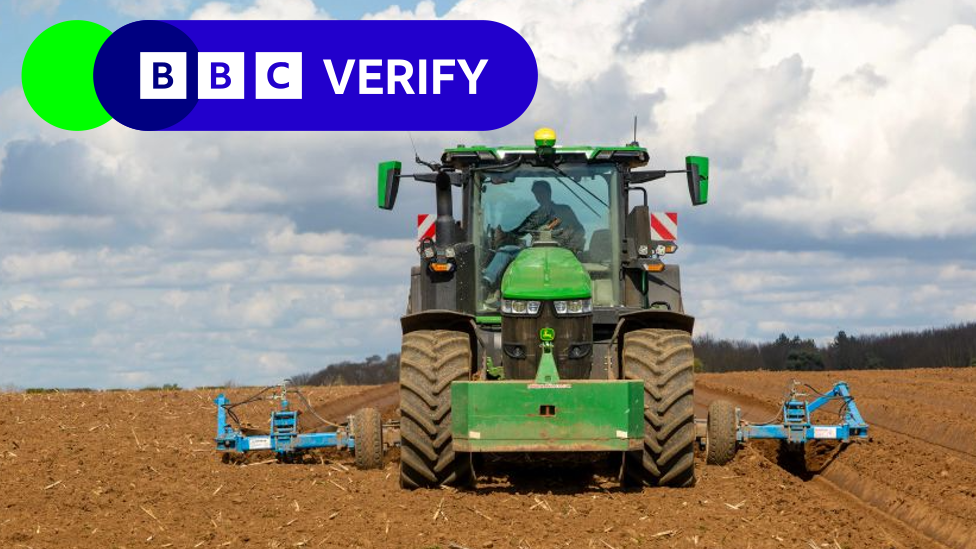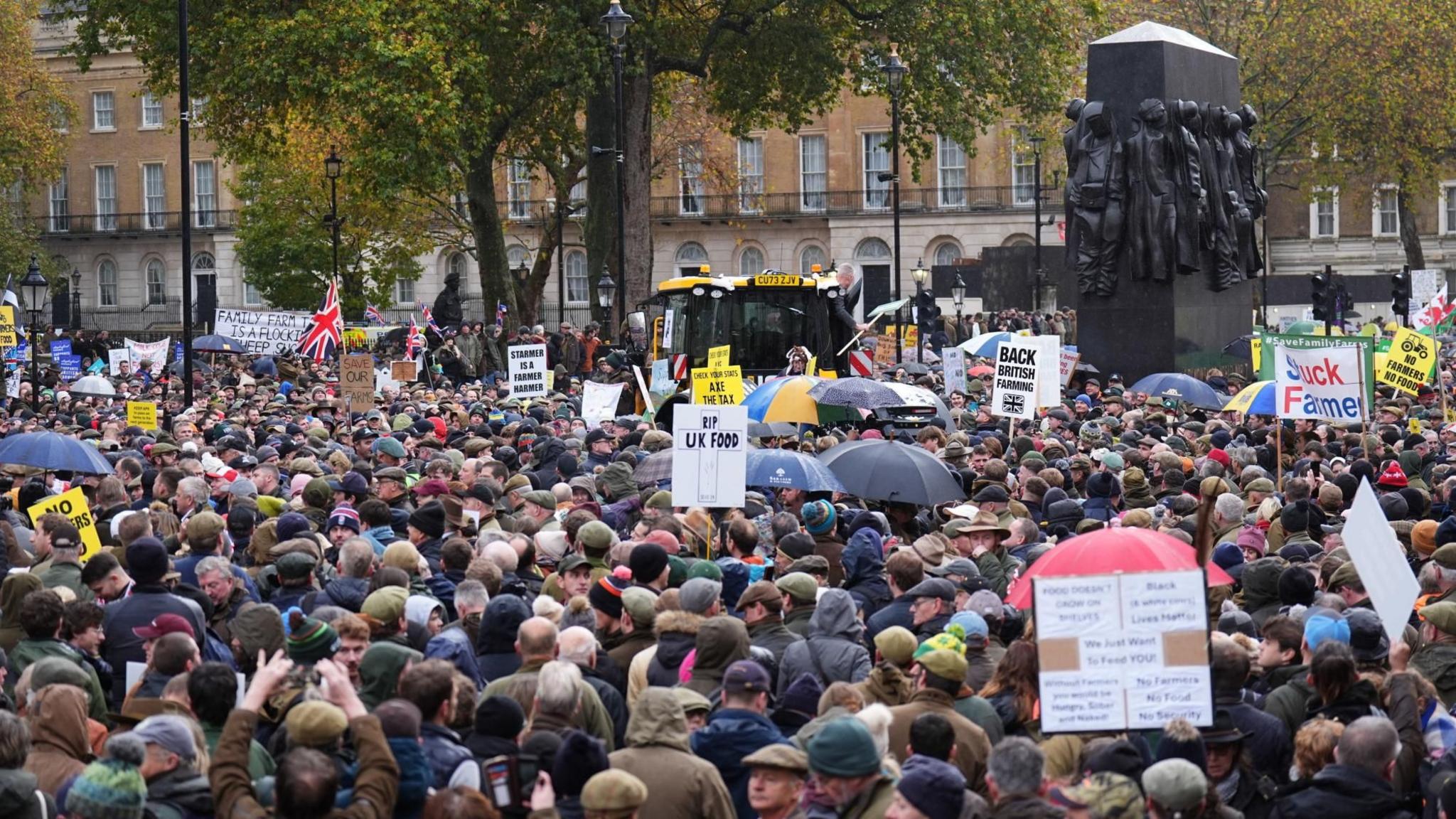Scottish farmers join inheritance tax protests

Hundreds of farmers were at Orkney Auction Mart for the protest
- Published
Farmers from across Scotland have joined demonstrations against changes to inheritance tax rules.
They oppose UK government plans to tax inherited agricultural assets worth more than £1m at 20% - half the usual rate - from April 2026.
While thousands of farmers from across the UK marched on Westminster, about 350 farmers in Orkney also staged a protest at a local auction mart. A march was also held in the Scottish Borders.
Prime Minister Keir Starmer has said he understands the concerns, but has insisted the "vast majority" of farms will be unaffected.
There has been an outcry from many farmers following the changes to inheritance tax for farms announced in the Budget.
Farmers travelled to London to take part in a rally near Parliament to highlight their concerns.
Farms that were previously exempt from inheritance tax will now have to pay 20%.
There have been different claims about how many farms will be affected.
These vary from as many as 70,000 to as few as 500.
The UK government has said that people inheriting farmland would have 10 years to pay the inheritance tax bill interest-free, unlike other inheritance tax, which needs to be paid immediately.
'Have to sell assets'
At the Orkney protest, Paul Ross - the Chairman of the Scottish Beef Association - spoke of the concerns.
"These tax changes that came in at the Budget have affected all sectors of agriculture," he told BBC Scotland News.
"Orkney traditionally has had family farms that were passed from generation to generation, which is quite common in other areas too.
"The changes to property relief and inheritance tax are really going to hit many of these businesses."
He warned: "It might see a number of them having to sell assets in order to pay [the tax] when someone dies."
'Fight for our industry'
Farmer Stewart Wood said: “I came here to support our industry. I’m a fourth generation farmer myself and over the years everything’s been handed down and it sort of makes life a lot simpler.
“The fifth generation is a partnership in the business so it’s very important that we know what our future's going to be."

Stewart Wood said his business would struggle if he had to do an inheritance tax transfer
He added that his oldest son was also in the business which would be passed on to him and he hopes his grandson will be interested in taking it on too.
"That would take it to six generations which is quite unique I think," he said.
“I’ve actually done the transfer about a year ago. We took the decision as I was getting older. I was very fortunate my dad left it to me at quite a young age so I felt we’d do the same thing."
Mr Wood said much of his money had been spent on buildings and equipment over the years and said his business would struggle if he had to do an inheritance tax transfer.
"The one farm would probably have to be sold off to pay for it which then makes you totally invaluable," he said.
"To be valuable now, you have to get bigger actually not smaller, so for family farms here in Orkney, it’s very important to us that we stand up and fight for what’s best for our industry."

There was also a protest in the Scottish Borders
Children strode into a Borders primary school sporting welly boots for the same cause.
Lesley Cavers, of Crosshall Farm near Eccles, was behind the march at Edenside School.
"A lot of farmers from the Borders and across the South of Scotland have gone down to London to make their voices heard and explain to the government how this will affect much more than the 6% of farmers the government seem to think," she said.
“For those that couldn’t go to London the welly boot march was to show the support for farming. As our area is farming orientated we thought it was a nice way to show our support to the farmers, and that as a community we do appreciate what they do for us."
Related topics
- Published10 December 2024

